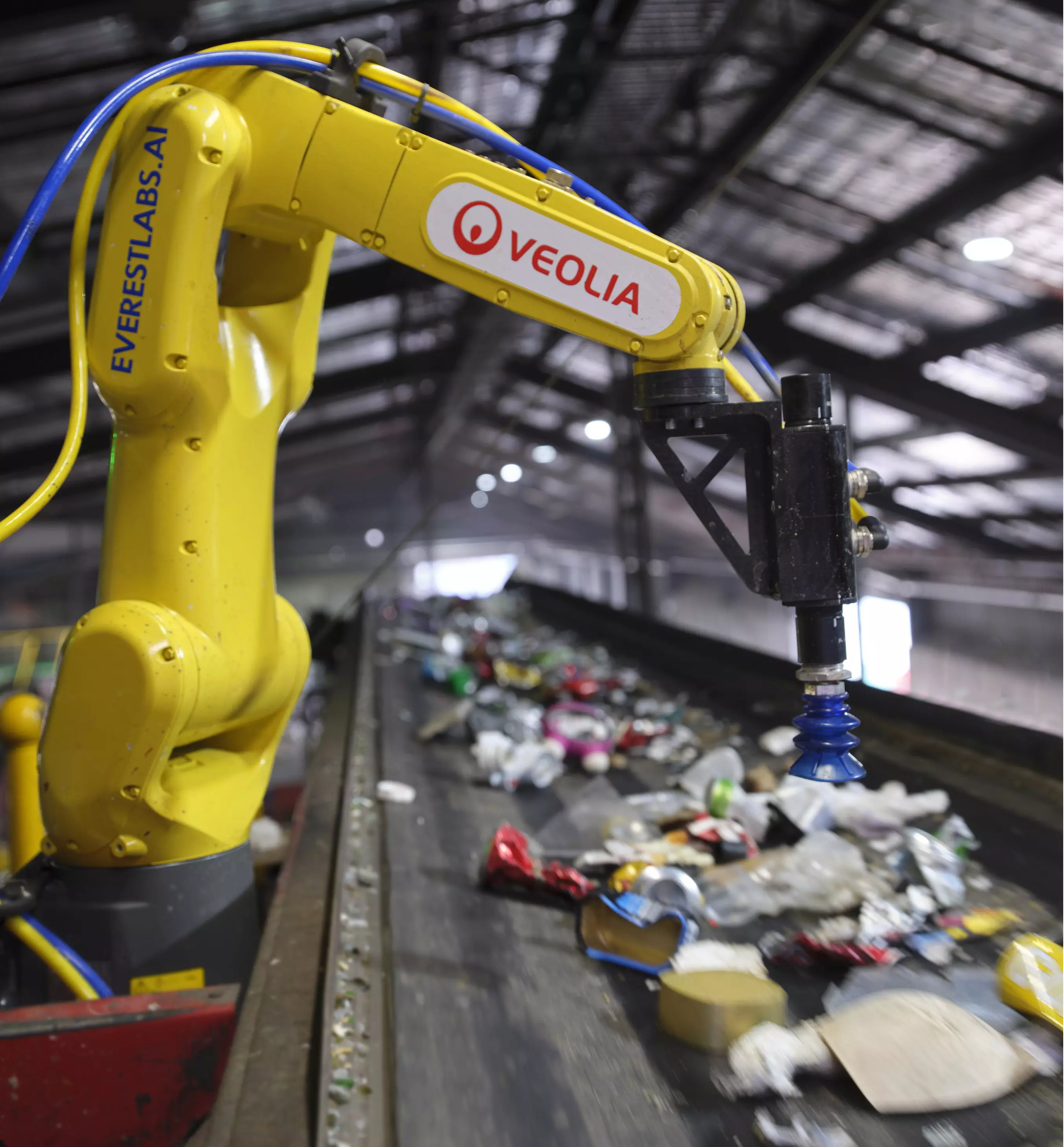Veolia Unveils AI-Powered Robotic Arm to Boost Plastic Recycling in Western Australia

Photo Credit: Veolia
Veolia Australia and New Zealand (Veolia ANZ) has announced a major step in upgrading its recycling capabilities, partnering with California-based EverestLabs to introduce artificial intelligence and robotic sorting technologies at a material recovery facility (MRF) in Perth. According to Veolia, this marks the first international rollout of EverestLabs’ advanced RecycleOS™ system.
The deployment underscores Veolia’s global push to modernize waste infrastructure and accelerate progress toward a circular economy. By integrating EverestLabs’ modular AI and robotics platform, Veolia ANZ will gain real-time visibility into plant operations, boost recovery rates, and mitigate workforce shortages that have challenged the recycling sector.
“It is in these repetitive processes, where machines can learn through AI and be guided by human intervention, that smart tech can be most useful,” said Richard Kirkman, CEO of Veolia ANZ. “Especially in Veolia’s world-leading resource recovery facilities and our rapidly expanding sector.”
According to Veolia, unlike traditional sorting systems, EverestLabs’ robotic cells are compact, quick to install, and designed to fit seamlessly into existing infrastructure without costly retrofits. Equipped with vision AI that continuously scans conveyor belts, the system directs robotic arms to identify and sort recyclables with a 90% pick success rate (achieved at Veolia’s Perth facility), running up to three times faster than manual labor and operating 24/7. A dedicated Robotic Operations Center in the U.S. remotely monitors performance to ensure reliability and efficiency.
Australia continues to face a significant recycling gap. According to data from the latest National Waste Report cited by Veolia, Western Australia recycles only 6.9% of its plastic waste, trailing the national average of 12.5%. More than 90% of plastic still ends up in landfill, even as plastic waste volumes rose by 12% over the past year, outpacing population growth.
Analysts note that AI-enabled automation could play a critical role in scaling resource recovery, especially amid labor shortages and mounting pressure to meet circular economy targets. With Veolia’s “Green Up” global strategy prioritizing Australia, the company’s investment positions the state as a testing ground for next-generation recycling solutions.
Industry experts suggest that successful deployment of AI-driven robotics could encourage broader adoption across Australia’s recycling infrastructure. If scaled nationally, the technology could help bridge the country’s recycling deficit, reduce carbon emissions, and unlock economic value from discarded plastics.
Source: Veolia






